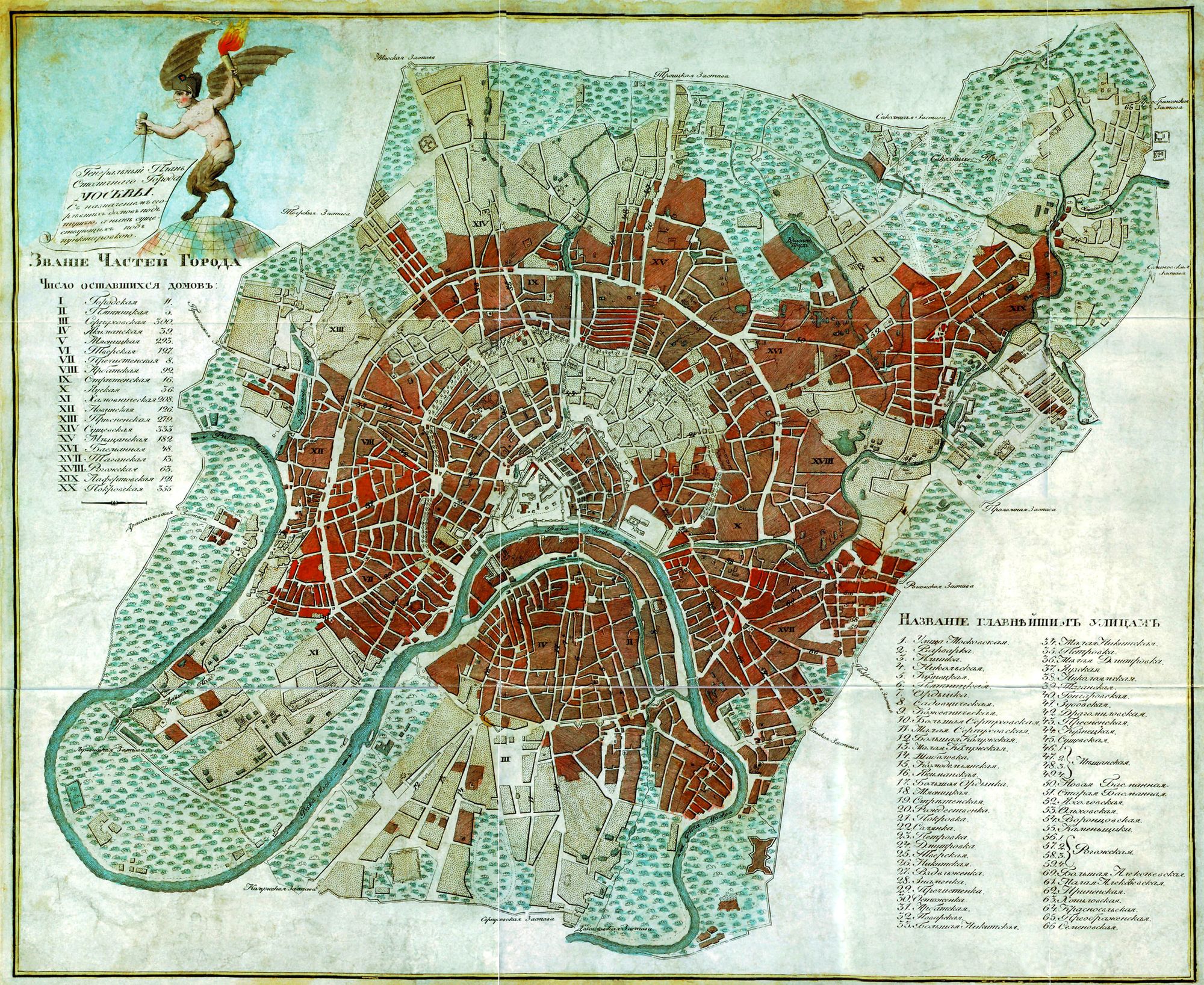How did the Great Fire of Moscow start?
Was the city fired by the Russians themselves, or did the blaze begin accidentally?

Two hundred and eleven years ago today, on September 18, 1812, the Great Fire of Moscow, which had raged for three and a half days, finally burned itself out. The conflagration destroyed about 75% of the city, which was built mostly of wood, and killed 12,000 people. This disaster was much greater in scope and severity even than the great fire that ravaged London in 1666, and it changed the course of history: it was the beginning of Napoleon's long retreat from Russia, which eventually precipitated the fall of his empire.
Exactly how the fire in Moscow started, and whether it was accidental or deliberate, has been a point of contention for the past 200 years. Moscow, while certainly not deserted by any means, had been largely abandoned as a military, political and economic stronghold by the Russian armies, who, upon Napoleon's invasion of their country, elected to retreat and leave the French nothing, while planning a counterattack on terms--and ground--favorable to the Russians. That counterattack occurred in early September, resulting in the Battle of Borodino, where the French were defeated. They fell back to Moscow which Napoleon had expected Tsar Alexander I to fight for. He didn't. While Napoleon kept his headquarters at the Kremlin and French troops camped in abandoned buildings, reports of small fires began to come in late on September 14. By the next day most of the city was in flames.
The conventional wisdom is that Russian partisans set the fires, hoping to burn the French out, set the fires. Indeed the governor of Moscow, Count Rostopchin, ordered before retreating that major public buildings be set on fire or blown up. This order wasn't carried out--or at least not fully carried out--but did some Russian troops left behind try to do their best to follow this order after he'd left? There is a report of French troops capturing a Moscow police officer caught in the act of setting fires, who was supposedly brought before Napoleon, admitting his purposes, and then bayoneted on the French emperor's orders. There's something a bit fishy about this account, but it's certainly possible. Rostopchin did order the disbanding of Moscow's fire brigades and destruction of any firefighting equipment. So it's quite possible that the sabotage of Moscow was indeed the idea of the Russians.

Some French who were there, however, believe the fires began accidentally. Leo Tolstoy, in his novel War and Peace, famously argued this position. He claimed, in a lengthy nonfiction digression in the book, that in a mostly wooden city occupied by foreign troops during cold weather--it was cold in Moscow in September 1812--it's almost inevitable for normal cook and campfires to get out of control and burn down the city. The Great Fire of London in 1666 began with a single spark in the wooden chimney of a government-contracted baker. But if this cycle is as inevitable as Tolstoy suggests, why weren't clearly accidental city fires more commonly associated with military occupations? New York burned in 1776, but that fire was deliberately started by the British; Atlanta burned in 1864, but that fire was also deliberate sabotage.
In 2017, during the heyday of my Second Decade podcast (which focused on events of the 1810s), I did a series of episodes on Napoleon's war in Russia. From what I read of the matter, the evidence seems fairly convincing that at least some of the fires were set deliberately, and that an incompleteness of the destruction order, assuming there was one, stemmed from the chaotic nature of the situation and the Russians' retreat. Tolstoy--a novelist, not a historian--appears to be the outlier here. It was more than 200 years ago, but I think it's still interesting to consider these historical questions.
The Value Proposition
Why should you be reading this blog, or receiving it as a newsletter? This is why.
☕ If you appreciate what I do, buy me a virtual coffee from time-to-time to support my work. I know it seems small, but it truly helps.
📖 You could also buy my newest book.
🎓 Like learning? Find out what courses I’m currently offering at my website.
📽 More the visual type? Here is my YouTube channel with tons of free history videos.



Comments ()